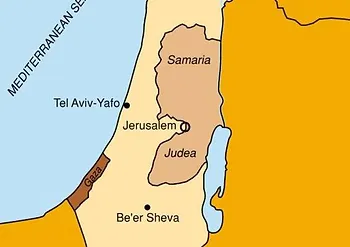
Judea and Samaria, also known as the West Bank, is a region located in the Middle East. It has a complex and significant historical, political, and cultural importance to various groups of people. The region has been a central point of conflict and negotiation between Israelis and Palestinians for many years. It is a place of profound religious significance for Jews, Christians, and Muslims, and has a rich and diverse cultural heritage. The status and future of Judea and Samaria are subjects of ongoing international debate and diplomatic efforts.
First Settlers Of Judea and Samaria
The initial inhabitants of Judea and Samaria, also referred to as the West Bank, have played a crucial role in shaping the region’s history and culture. Dating back to ancient times, the area has been inhabited by various peoples, including ancient Israelites, Canaanites, and other indigenous groups. These early settlers laid the foundation for the diverse cultural and historical significance that Judea and Samaria holds to this day. Moreover, their legacy continues to influence the ongoing discussions and negotiations surrounding the region’s status and future.
Judea and Samaria in the Quran
Sayyidna Ilyas (علیہ السلام)
This was a time when the kingdom of Bani Isra’il had split into two states. One part was called Yahudiyah (Judah) with its capital at Baytul-Maqdis (Jerusalem) while the other part was known as Isra’il, and its capital was Samaria (present Nablus). Sayyidna Ilyas (علیہ السلام) was born at Jal` ad in Jordan. The name of the king who ruled the Isra’il has been given as Ahab in the Bible and Ajib or Akhib in Arab historical and exegetic writings. His wife Isabelle worshiped an idol called Ba’l, and it was she who had put the entire Bani Isra’il on the path of idolatry by raising a huge altar dedicated to Ba` I in the country of Isra’il. Allah Ta’ ala commanded Sayyidna Ilyas (علیہ السلام) to go in that area, preach pure monotheism and dissuade Israelites from indulging in idol worship (please see Tafsir Ibn Jarir, p.53, v.23; Ibn Kathir, p.19, v.4; Tafsir Mazhari, p.134, v.8 and the Bible: Kings I: 16:29-33 and 17:1).

